Top bore valve in China introduce,list main products and website if have
One of the top bore valve manufacturers in China is Zhejiang Zhongtian Machinery Co., Ltd. They specialize in producing a wide range of bore valves including gate valves, globe valves, check valves, ball valves, and butterfly valves. These valves are widely used in industries such as oil and gas, petrochemical, water treatment, and power generation.
Zhejiang Zhongtian Machinery Co., Ltd. is known for their high-quality products, competitive prices, and excellent customer service. They have a team of experienced engineers and technicians who ensure that all valves meet international standards and specifications.
Their main products include:
1. Gate valves: including rising stem gate valves, non-rising stem gate valves, and slab gate valves.
2. Globe valves: including angle globe valves and straight globe valves.
3. Check valves: including swing check valves, lift check valves, and dual plate check valves.
4. Ball valves: including floating ball valves and trunnion mounted ball valves.
5. Butterfly valves: including wafer butterfly valves and lug butterfly valves.
For more information about Zhejiang Zhongtian Machinery Co., Ltd. and their products, you can visit their website at www.ztvalve.com. Their website provides detailed information about their products, certifications, and production capabilities. You can also contact them directly for inquiries or to request a quote.
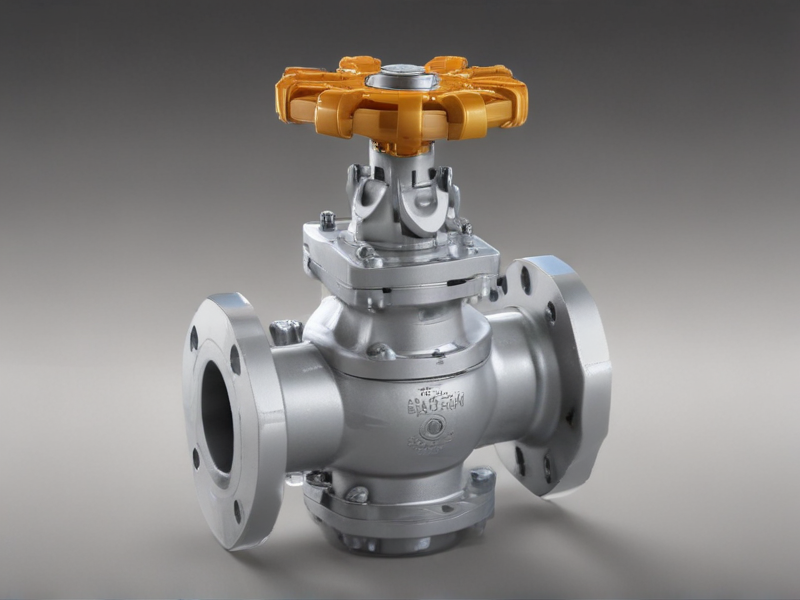
Types of bore valve
Bore valves are an essential component in various industries and applications where fluid control is required. There are several types of bore valves available, each designed for specific purposes and operating conditions.
1. Ball Valves: These valves have a spherical closure unit that allows for efficient shut-off and control of fluid flow. Ball valves are commonly used in high-pressure and high-temperature applications due to their durability and reliability.
2. Gate Valves: Gate valves have a straight-through design with a wedge-shaped gate that can be raised or lowered to control the flow of the fluid. These valves are ideal for applications where a tight seal is required, such as in water and wastewater treatment plants.
3. Butterfly Valves: Butterfly valves have a flat disc that rotates on a central axis to control the flow of fluid. They are lightweight and cost-effective, making them popular in applications where frequent operation is required, such as in HVAC systems.
4. Plug Valves: Plug valves have a cylindrical or conical plug that can be rotated to control the flow of fluid. These valves are versatile and can be used in a wide range of applications, including in the oil and gas industry.
5. Diaphragm Valves: Diaphragm valves have a flexible diaphragm that is raised or lowered to control the flow of fluid. These valves are ideal for handling corrosive or abrasive fluids due to their simple and reliable design.
6. Pinch Valves: Pinch valves use a flexible elastomer sleeve to control the flow of fluid by pinching or releasing the sleeve. These valves are commonly used in slurries and solid-liquid separation processes.
Overall, the selection of a bore valve depends on the specific requirements of the application, such as the pressure, temperature, and type of fluid being handled. It is important to choose the right type of bore valve to ensure efficient and reliable fluid control.
Pros and Cons of Using bore valve
Pros of using bore valves include:
1. Improved control: Bore valves allow for precise control of flow rates, pressure, and temperature, making them ideal for applications requiring accurate regulation.
2. Durability: Bore valves are commonly made from high-quality materials such as stainless steel, brass, or bronze, ensuring long-term durability and resistance to corrosion.
3. Versatility: Bore valves can be used in a wide range of industries and applications, including oil and gas, chemical processing, water treatment, and more.
4. Easy maintenance: Bore valves are typically designed for easy maintenance, with seal replacements and other repairs often being straightforward.
5. Resilience: Bore valves are capable of operating effectively in high-pressure and high-temperature environments, making them suitable for demanding applications.
Cons of using bore valves include:
1. Cost: Bore valves can be more expensive than other types of valves due to their precision engineering and high-quality materials.
2. Limited application: While bore valves are versatile, they may not be suitable for all applications, especially those with specific requirements that cannot be met by a standard bore valve.
3. Size limitations: Bore valves typically have a smaller bore size compared to other types of valves, which may limit their application in systems requiring larger flow capacities.
4. Complexity: Some bore valves may be more complex to install and operate compared to other types of valves, requiring specialized knowledge and training.
5. Maintenance requirements: While bore valves are generally easy to maintain, they may require more frequent servicing and inspections to ensure optimal performance.
In conclusion, bore valves offer superior control, durability, and versatility but may come with higher costs and size limitations. Understanding the pros and cons of bore valves can help in determining their suitability for specific applications.
bore valve Reference Specifications (varies for different product)
A bore valve is a type of valve that is used to control the flow of fluids in a pipeline or system. These valves come in various specifications depending on the specific application and requirements. Some common reference specifications for bore valves include:
1. Size: Bore valves come in a range of sizes to accommodate different pipeline diameters. The size of the valve is typically specified in inches or millimeters.
2. Material: Bore valves can be made from a variety of materials such as stainless steel, carbon steel, or PVC. The material of the valve is chosen based on factors such as the type of fluid being controlled and the operating conditions.
3. Pressure rating: Bore valves are designed to withstand a certain level of pressure within the pipeline. The pressure rating of the valve is typically specified in pounds per square inch (psi) or bar.
4. Temperature rating: Bore valves also have a maximum temperature rating, which indicates the highest temperature at which the valve can safely operate. This rating is important to ensure that the valve does not fail or malfunction under high temperatures.
5. End connections: Bore valves can have different types of end connections, such as flanged, threaded, or welded connections. The type of end connection required will depend on the specific installation requirements.
Overall, it is important to carefully consider these reference specifications when selecting a bore valve to ensure that it is compatible with the intended application and will function properly in the pipeline system.
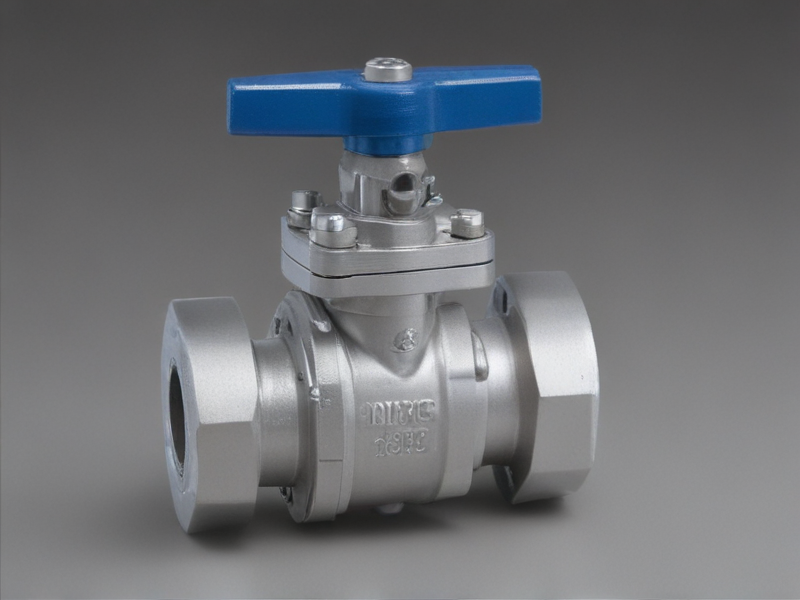
Applications of bore valve
Bore valves are primarily used in the oil and gas industry to control the flow of fluids in wells. These valves are critical components in well completion and production operations, as they help regulate the flow of oil, gas, and other fluids from the reservoir to the surface. Bore valves can be used in various applications, including:
1. Production control: Bore valves help regulate the flow of oil and gas from the reservoir to the surface, ensuring optimal production rates and efficiency. These valves can be opened or closed to control the flow of fluids and prevent fluid losses, gas locks, and other issues that can affect production.
2. Well testing: Bore valves are essential in conducting well testing to assess the productivity and performance of a well. By controlling the flow of fluids during testing operations, bore valves allow operators to collect accurate data on reservoir characteristics and well performance.
3. Well stimulation: Bore valves are used in well stimulation operations, such as hydraulic fracturing, to control the injection of fluids and proppants into the wellbore. These valves help regulate the flow of fluids and ensure that the stimulation process is carried out effectively.
4. Well completion: Bore valves are installed in the wellbore during completion operations to isolate different zones in the well and control the flow of fluids during production. By using bore valves, operators can optimize the performance of the well and prevent the mixing of different fluids.
Overall, bore valves play a crucial role in the oil and gas industry by controlling the flow of fluids in wells and ensuring efficient and safe operations. These valves are essential components in well completion, production, testing, stimulation, and other operations that help maximize the recovery of hydrocarbons from reservoirs.
Material of bore valve
Bore valves are typically made from a variety of materials, depending on the specific application and operating conditions. Some common materials used for bore valves include stainless steel, carbon steel, brass, bronze, and PVC.
Stainless steel bore valves are popular in industries requiring corrosion resistance and high strength, such as the oil and gas, chemical, and food processing sectors. They are known for their durability and ability to withstand high-pressure and high-temperature applications.
Carbon steel bore valves offer excellent strength and toughness, making them suitable for applications in industries like power generation, water treatment, and HVAC systems. They are also resistant to corrosion and erosion, providing a long service life.
Brass and bronze bore valves are often used in plumbing and water distribution systems due to their excellent resistance to corrosion and low friction properties. These materials are also easy to machine and provide good sealing capabilities.
PVC bore valves are popular in applications where chemical resistance and cost-effectiveness are important factors. They are lightweight, easy to install, and offer good durability in non-corrosive environments.
In conclusion, the material of bore valves is chosen based on the specific requirements of the application, such as corrosion resistance, strength, temperature and pressure resistance, and cost-effectiveness. Each material has its own advantages and limitations, and selecting the right material is crucial for ensuring the proper functioning and longevity of the valve.
Quality Testing Methods for bore valve and how to control the quality
There are several quality testing methods for bore valves that can be used to ensure their reliability and functionality. Some common testing methods include pressure testing, visual inspection, functional testing, and material analysis.
Pressure testing involves subjecting the bore valve to high pressure to ensure it can withstand the specified operating conditions without leaking or failing. Visual inspection involves examining the bore valve for any visible defects such as cracks, corrosion, or irregularities in the surface finish. Functional testing involves testing the bore valve under actual operating conditions to ensure it functions as intended. Material analysis involves analyzing the composition and properties of the materials used in the bore valve to ensure they meet the required specifications.
To control the quality of bore valves, it is important to establish clear quality standards and specifications for the valves. This includes defining acceptable tolerances for dimensions, pressure ratings, and material properties. Regular quality audits and inspections should be conducted to ensure that bore valves are manufactured and tested in accordance with these standards. Quality control measures should be implemented throughout the manufacturing process, including raw material inspection, in-process testing, and final product inspection.
By implementing these quality testing methods and quality control measures, manufacturers can ensure that bore valves meet the required quality standards and provide reliable performance in various industrial applications.
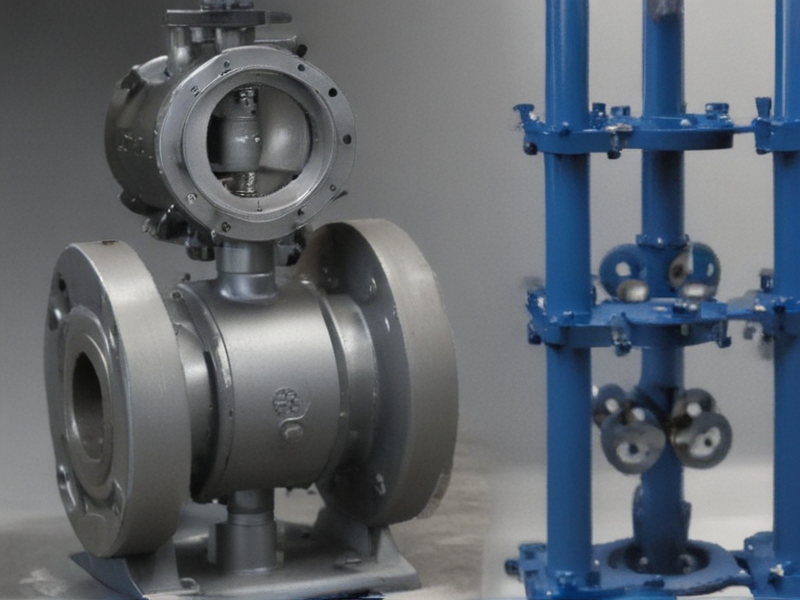
The Work Process and how to use bore valve
The work process of a bore valve involves controlling the flow of fluids or gases through a borehole. Bore valves are typically used in oil and gas drilling operations, as well as in mining and water well drilling.
To use a bore valve, first, ensure that the valve is properly installed and securely fastened to the borehole. Next, adjust the valve to the desired flow rate or pressure by turning the handle or operating the control mechanism. Make sure to follow any specific instructions provided by the manufacturer for proper operation.
When using a bore valve, it is important to not exceed the maximum operating pressure or flow rate specified by the manufacturer. This can lead to valve failure, leaks, or other safety hazards. Regularly inspect the valve for any signs of wear or damage, and replace any worn or faulty parts as needed.
In conclusion, the work process of a bore valve involves controlling the flow of fluids or gases in a borehole. To use a bore valve, ensure proper installation, adjust the flow rate or pressure as needed, and avoid exceeding the manufacturer’s specifications. Regular maintenance and inspection are key to ensuring the safe and efficient operation of a bore valve.
bore valve Importing questions including Cost,Supplier,Sample,Certification and Market
When considering importing bore valves, there are several key questions to address.
Cost: What is the cost of the bore valves, including shipping and any associated fees? It is important to obtain quotes from multiple suppliers to ensure competitive pricing.
Supplier: Who is the supplier of the bore valves? It is essential to conduct due diligence on the supplier, including verifying their reputation, experience, and quality of products.
Sample: Can a sample of the bore valves be provided before making a purchase? This can help evaluate the quality and suitability of the product before committing to a larger order.
Certification: Do the bore valves meet relevant certification standards, such as ISO or API certifications? Ensuring that the products have been tested and approved by regulatory bodies can help guarantee their quality and compliance with industry standards.
Market: What is the market demand for bore valves in the target region? Conducting market research and analyzing trends can help determine the potential success of importing bore valves in a specific market.
In conclusion, importing bore valves requires consideration of cost, supplier reputation, availability of samples, certification, and market demand. By addressing these key questions, businesses can make informed decisions and ensure a successful import process.
How to find and select check reliable bore valve manufacturers in China
When looking for reliable bore valve manufacturers in China, there are a few key steps you can take to ensure that you are selecting a reputable and trustworthy supplier.
First, conduct thorough research online and look for recommendations from industry experts or previous customers. You can also check online trade directories such as Alibaba or Global Sources to find a list of potential manufacturers.
Next, make sure to verify the company’s credentials and certifications to ensure that they meet industry standards and regulations. Look for manufacturers that have ISO certifications, and other relevant quality control certifications.
It’s also helpful to request samples or visit the manufacturer’s facilities to inspect the quality of their products and production processes. This will give you a better idea of their capabilities and reliability as a supplier.
Lastly, ask for references and contact previous customers to get feedback on their experiences with the manufacturer. This will give you valuable insights into their reputation and customer service.
Overall, taking the time to thoroughly research and vet potential bore valve manufacturers in China will help you find a reliable supplier that meets your needs and requirements.
Background Research for bore valve manufacturers Companies in China, use qcc.com archive.org importyeti.com
Bore valve manufacturers in China can be found through various sources online. One such source is qcc.com, which is a comprehensive database of Chinese companies. By searching for bore valve manufacturers on qcc.com, you can find a list of companies that specialize in manufacturing these products.
Another useful resource is archive.org, which is a digital archive of websites and online content. By searching for bore valve manufacturers on archive.org, you can find historical information about these companies, including their past products and services.
Importyeti.com is also a valuable tool for finding bore valve manufacturers in China. This platform provides data on companies that export and import products, including bore valves. By searching for bore valve manufacturers on importyeti.com, you can find a list of companies that are involved in the production and distribution of these products.
Overall, these online resources can help you identify bore valve manufacturers in China and gather important information about their products and services. By using qcc.com, archive.org, and importyeti.com, you can streamline your search process and find the right manufacturer for your specific needs.
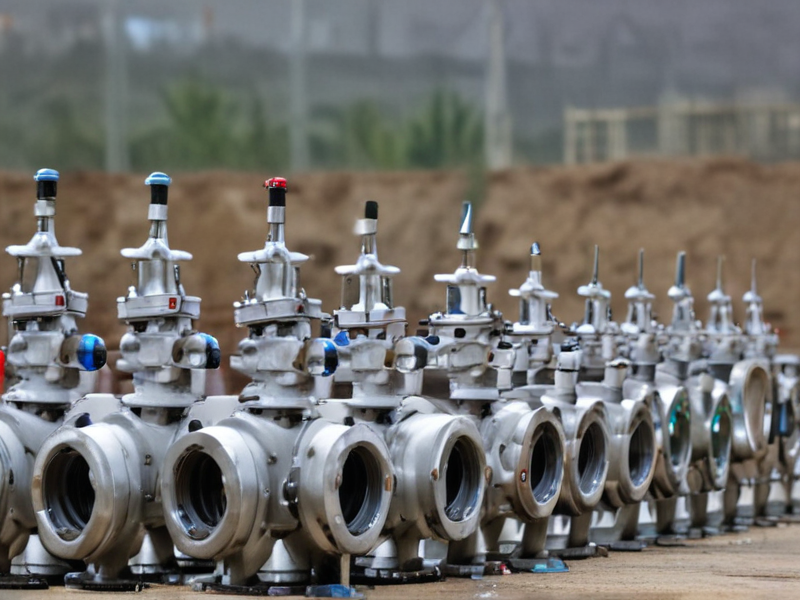
Price Cost Research for bore valve manufacturers Companies in China, use temu.com and 1688.com
When conducting price cost research for bore valve manufacturers in China, two primary sources that can be utilized are temu.com and 1688.com. These platforms provide a wide range of manufacturers, suppliers, and products, making them ideal for sourcing competitive pricing information.
For example, by searching for bore valve manufacturers on temu.com, users can compare prices of various vendors, view product specifications, and read customer reviews. This can help in determining the average market price for bore valves and identifying potential suppliers for further negotiation.
Similarly, 1688.com is another popular online marketplace in China that offers a vast selection of bore valve manufacturers. Users can search for specific products, filter results based on price range, and contact suppliers directly for pricing information. This platform provides transparency in pricing and facilitates direct communication with manufacturers, enabling users to negotiate competitive prices.
By utilizing these online platforms, businesses can conduct comprehensive price cost research for bore valve manufacturers in China. This enables them to make informed decisions, optimize costs, and source high-quality products at competitive prices.
Shipping Cost for bore valve import from China
The shipping cost for importing bore valves from China can vary depending on several factors. Some of the key factors that can impact the shipping cost include the size and weight of the shipment, the shipping method chosen, the distance between the origin and destination, and any additional services required such as expedited shipping or insurance.
One common method for shipping goods from China is by sea freight. The cost of shipping by sea freight is typically calculated based on the volume or weight of the shipment, known as cubic meter rate or weight rate respectively. The average cost of shipping a standard 20-foot container from China to a major port in the United States is around $2000 to $3000. The cost can vary depending on the specific port of origin and destination.
Alternatively, air freight is another option for shipping bore valves from China. Air freight is faster but generally more expensive than sea freight. The cost of air freight is typically calculated based on the weight of the shipment. The average cost of shipping a 100kg shipment of bore valves from China to the United States is around $300 to $500.
It is important to note that additional costs such as customs duties, taxes, and handling fees may also apply when importing goods from China. It is recommended to work with a reputable freight forwarder or shipping agent to get an accurate quote and ensure a smooth importing process.
In conclusion, the shipping cost for importing bore valves from China can vary depending on several factors such as the shipping method chosen, the size and weight of the shipment, and the specific origin and destination. By working with a trusted freight forwarder and carefully planning the import process, it is possible to keep the shipping cost within a reasonable range.
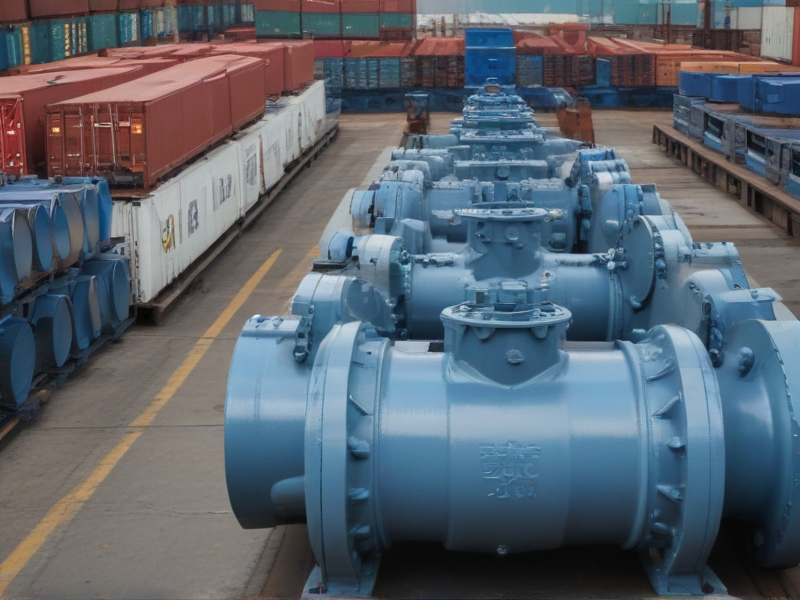
Compare China and Other bore valve Markets: Products Quality and Price,Visible and Hidden Costs
China is known for its competitive pricing in the bore valve market, offering products at relatively lower prices compared to other markets. However, there have been concerns about the quality of products from China, with reports of inconsistencies and unreliability in terms of performance and durability. This has led to some customers opting for products from other markets that are perceived to be of higher quality, albeit at a higher price.
In terms of visible costs, China’s pricing advantage is evident with its lower price tags, attracting cost-conscious customers. However, hidden costs such as maintenance, repairs, and replacements can add up over time if the quality of the products is compromised. Customers may end up spending more on these hidden costs in the long run, negating the initial savings from purchasing cheaper products from China.
On the other hand, markets with a reputation for high-quality bore valves may have higher upfront prices, but they often come with superior performance and durability, resulting in lower hidden costs in the long term. Customers are willing to pay a premium for products that are reliable and long-lasting, providing better value for money.
In conclusion, while China offers competitive pricing in the bore valve market, customers should consider both visible and hidden costs when making purchasing decisions. It is essential to balance price and quality to ensure value for money and avoid potential long-term costs associated with inferior products.
Custom Private Labeling and Branding Opportunities with Chinese bore valve Manufacturers
Partnering with Chinese bore valve manufacturers for custom private labeling and branding opportunities can offer numerous benefits for businesses looking to differentiate themselves in the market. By leveraging the expertise and advanced manufacturing capabilities of Chinese manufacturers, companies can create unique and high-quality bore valves that reflect their brand identity.
With custom private labeling, businesses can have their logo, brand name, and other design elements prominently displayed on the bore valves. This can help increase brand visibility, enhance brand recognition, and create a more professional and cohesive product offering. Additionally, by working with Chinese manufacturers, businesses can benefit from cost-effective production processes, quick turnaround times, and access to a wide range of customization options.
By collaborating closely with Chinese bore valve manufacturers, businesses can also ensure that their products meet the highest quality standards and specifications. From selecting the right materials and finishes to implementing rigorous quality control measures, manufacturers can help businesses create durable and reliable bore valves that meet their exact requirements.
Overall, partnering with Chinese bore valve manufacturers for custom private labeling and branding opportunities can be a strategic decision for businesses looking to stand out in a competitive market. By working with experienced manufacturers, businesses can create unique and high-quality products that showcase their brand identity and attract customers.
Tips for Procurement and Considerations when Purchasing bore valve
When purchasing a bore valve for your procurement needs, there are several factors to consider to ensure you are selecting the right product for your specific requirements. Here are some tips and considerations to keep in mind:
1. Materials: Choose a bore valve that is made of high-quality materials such as stainless steel, brass, or PVC to ensure durability and longevity.
2. Size: Consider the size of the bore valve that you need for your application. Make sure to measure the bore size and choose a valve that fits correctly.
3. Pressure Rating: Check the pressure rating of the bore valve to ensure it can handle the pressure levels in your system without leaking or failing.
4. Functionality: Determine the type of bore valve you need based on its functionality. For example, do you need a ball valve, gate valve, or butterfly valve?
5. Compatibility: Make sure the bore valve you choose is compatible with the other components in your system to prevent any issues with installation or performance.
6. Brand Reputation: Choose a reputable brand or manufacturer for your bore valve to ensure quality and reliability.
7. Budget: Set a budget for your procurement needs and stick to it. Compare prices from different suppliers to get the best value for your money.
8. Warranty: Check if the bore valve comes with a warranty or guarantee to protect your investment in case of any defects or issues.
By considering these tips and factors when purchasing a bore valve, you can ensure you are making the right choice for your procurement needs and selecting a high-quality product that meets your specific requirements.
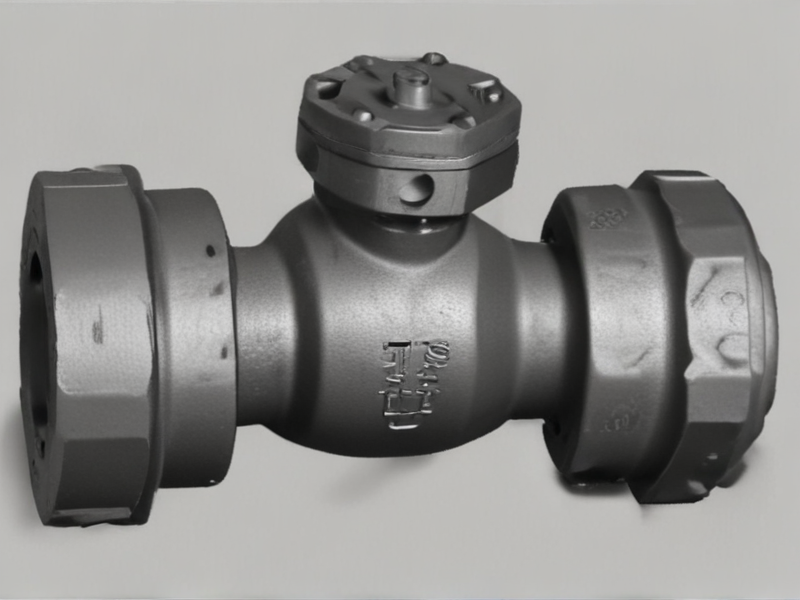
FAQs on Sourcing and Manufacturing bore valve in China
1. How can I find a reliable manufacturer for bore valves in China?
A: To find a reliable manufacturer for bore valves in China, you can start by conducting thorough research online and exploring industry-specific directories like Alibaba, Global Sources, or Made-in-China. It is essential to check the manufacturer’s credibility by reviewing their certifications, client testimonials, and manufacturing capabilities.
2. What are some key factors to consider when sourcing bore valves from China?
A: Key factors to consider when sourcing bore valves from China include the manufacturer’s production capacity, quality control processes, lead times, pricing, and the ability to comply with international standards and certifications. It is also crucial to establish clear communication channels and assess the manufacturer’s willingness to accommodate customizations or modifications.
3. How do I ensure the quality of bore valves manufactured in China?
A: To ensure the quality of bore valves manufactured in China, it is important to conduct factory audits, request samples, and implement a thorough quality control inspection process. Working with manufacturers that have certifications like ISO 9001 can also provide assurance of product quality and consistency.
4. Can I customize bore valves according to my specifications in China?
A: Yes, many manufacturers in China offer customization services for bore valves according to specific client requirements. It is essential to communicate your specifications clearly and work closely with the manufacturer throughout the production process to ensure that the final product meets your expectations.
5. What are the average lead times for manufacturing bore valves in China?
A: Lead times for manufacturing bore valves in China can vary depending on factors like the complexity of the product, order quantity, and the manufacturer’s production capacity. On average, lead times can range from a few weeks to a couple of months, so it is crucial to discuss timelines with the manufacturer and plan ahead to meet your project deadlines.
Why contact sourcifychina.com get free quota from reliable bore valve suppliers?
Sourcify China is a reliable sourcing platform that connects businesses with high-quality suppliers in China. By contacting Sourcify China, you can get a free quota from reliable bore valve suppliers to help streamline your sourcing process and ensure you are working with reputable manufacturers.
Obtaining a free quota from these suppliers through Sourcify China allows you to easily compare quotes, negotiate pricing, and ultimately choose the supplier that best meets your specific needs and requirements. This can save you time and money by ensuring you are getting the best possible deal on high-quality bore valves.
Working with reliable bore valve suppliers through Sourcify China also gives you access to a wide range of products, ensuring you can find the precise specifications and quantities you need for your business. Additionally, Sourcify China’s team of experts can help facilitate communication and ensure a smooth sourcing experience from start to finish.
Overall, by utilizing Sourcify China to connect with reliable bore valve suppliers and obtain a free quota, you can streamline your sourcing process, save money, and ensure you are working with trusted manufacturers who can deliver high-quality products on time and within budget.
